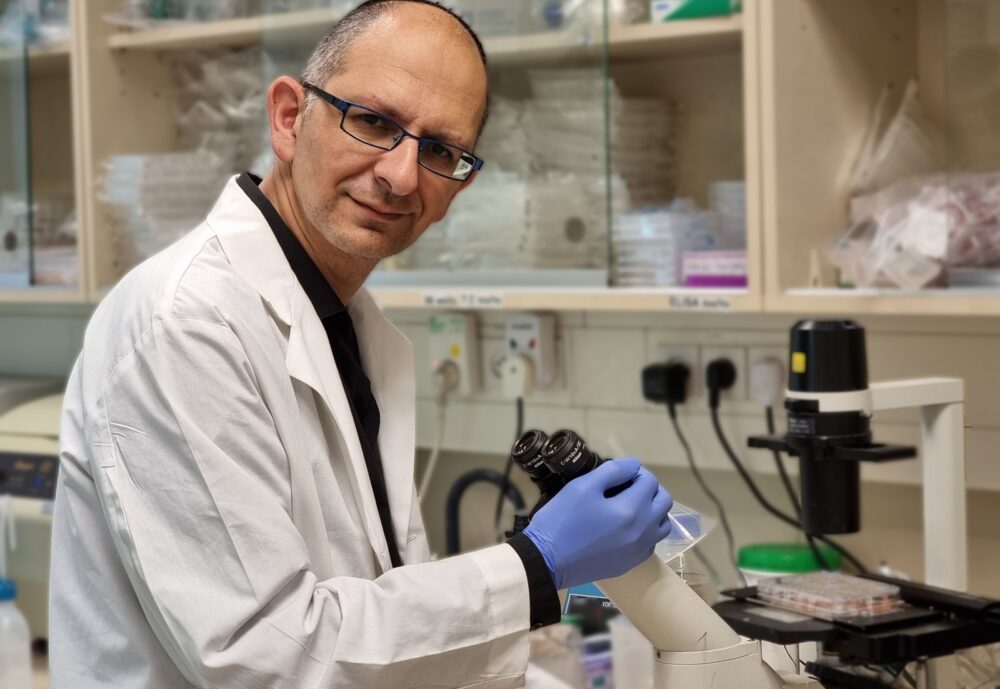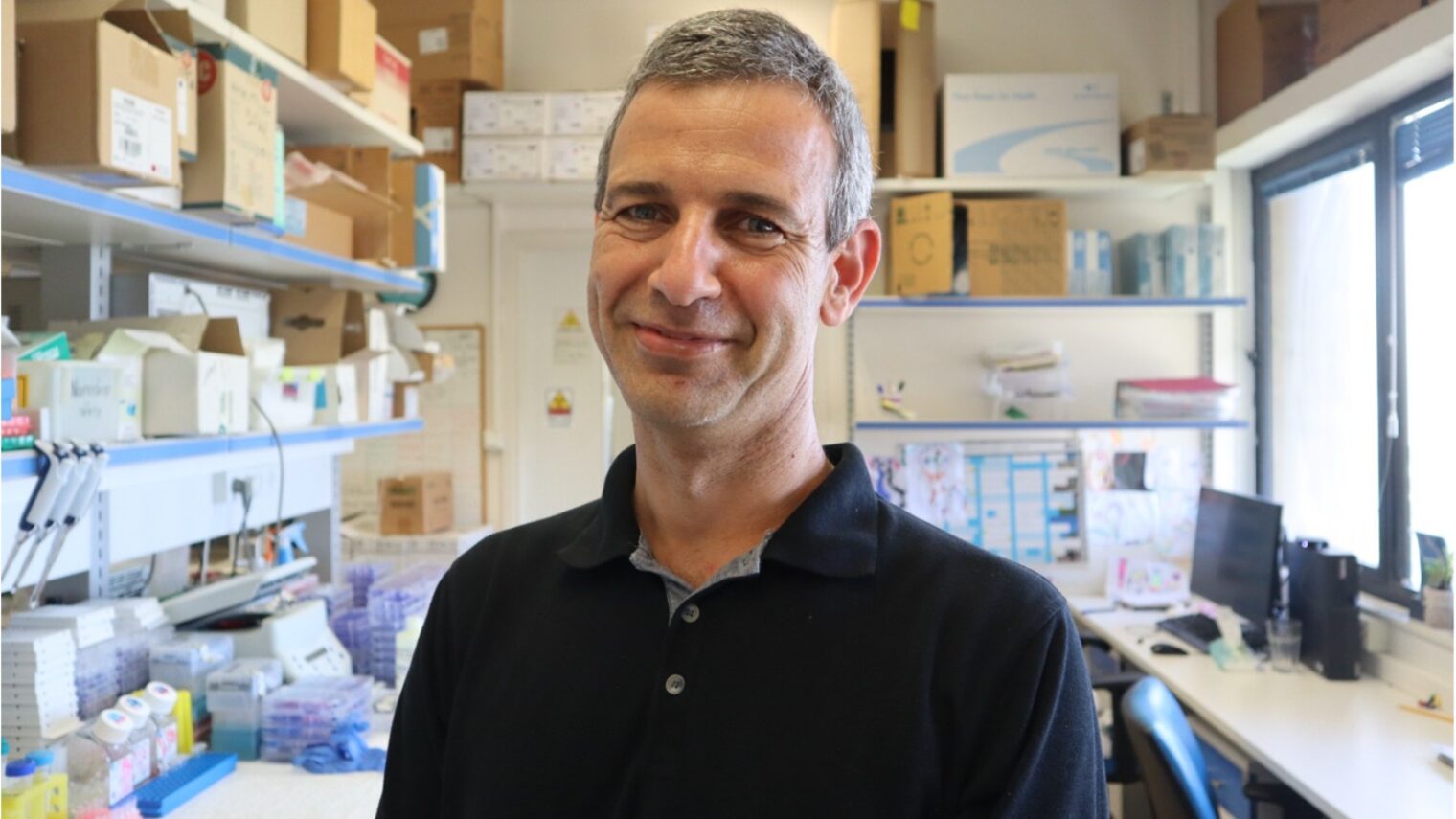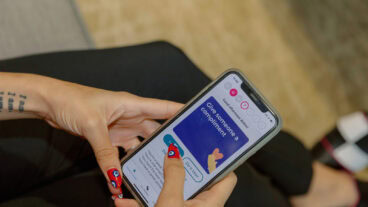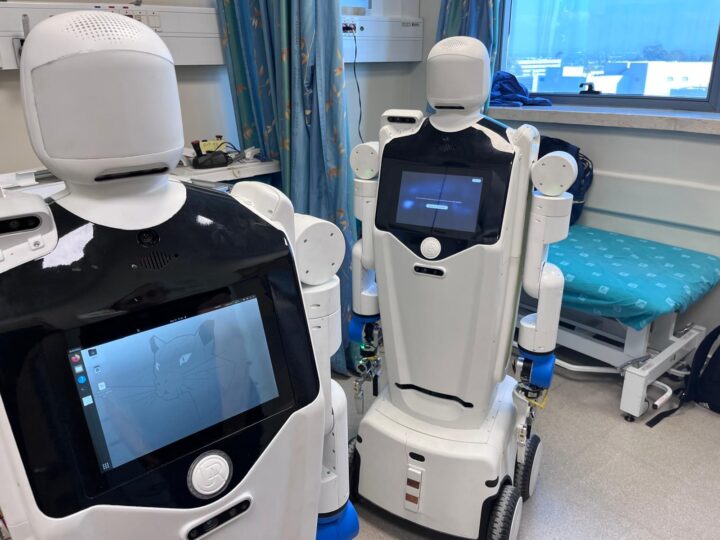We are all fed up with Covid-19. The quarantines, the masks, the restrictions, the shots, the swabs up the nose, the infections and reinfections.
With the Omicron variant running rampant across the world, many people are wondering if it’s smart to just get it and get over it.
After all, we know that vaccinated people are likely to have a mild case. We’ve heard that being both vaccinated and recovered can give you “super immunity.”
So why not plan to get exposed at a convenient time and possibly be super immune against future infection?
We asked Israeli medical experts to weigh in on this debate – and they all gave it a thumbs down.
Oren Kobiler, professor of clinical microbiology and immunology at Tel Aviv University’s medical school:
“I am always against getting yourself infected on purpose, especially because we still don’t have any idea what this coronavirus will do to us in the long term,” Kobiler says.
He adds that a second type of Omicron, first reported in Denmark and Norway, can infect people who were infected with the first Omicron variant.
Even if you become “super immune” to Omicron through vaccination and infection, we don’t know how long those antibodies last or if they can protect against future variants.
“So although it’s a very mild disease — at least in vaccinated people in most cases, especially in young healthy people — I wouldn’t get myself infected if I can prevent it, and I definitely wouldn’t get my kids infected because I don’t know what it will do in the long term,” Kobiler says.
We’re still learning about Covid-19, and therefore Kobiler finds it curious that many people are more afraid of long-term effects of the vaccine than of long-term effects of the virus.
Cyrille Cohen, head of the immunotherapy laboratory at Bar-Ilan University:

“Like for chickenpox, the virus may better immunize than the vaccine, but we still vaccinate to protect our children,” says Cohen.
“Saying ‘the virus seems more immunizing than the vaccine’ doesn’t mean ‘do not get vaccinated’ or that one should expose oneself voluntarily to Covid.”
While it’s true that the current vaccines are less effective against infection with Omicron and possibly against future variants – they still save lives and reduce severe cases, Cohen says.
“Bottom line: Don’t expose yourself intentionally to Covid. Immunity will be a consequence of getting infected but don’t actively seek an infection. Get a booster shot for better protection.”
Manfred Green, director of the University of Haifa’s international master’s program in global health leadership, previous head of the IDF Public Health Branch and founding director of the Israel Center for Disease Control:

Aside from obvious risks from infection — long Covid, side effects such as multisystem inflammatory syndrome in children and other side effects we don’t know about, says Green – the problem is that the more a virus circulates the more it creates new variants.
“The more people get sick and gain immunity to that particular variant, they actually are encouraging the virus to mutate. It’s better for everyone that this virus circulates as little as possible.”
Green is skeptical of the term “super immunity” because it falsely implies that if you’re vaccinated and recovered you cannot get infected. He says that “booster effect” is a more accurate term.
“Really it just means you’ll have a higher level of antibodies because if you’re exposed to the actual virus you’re exposed to more antigens than you are from the vaccine. Theoretically, that could cover you for more [SARS-CoV-2] subtypes but it doesn’t necessarily give you a big advantage.”
Green encourages everyone to get vaccinated and get their children vaccinated (especially if, against all advice, they decide to get exposed intentionally) to lower the risk of serious illness and rare complications.
“There should be no concern about the vaccine for children. Vaccines are not medications with long-term effects,” Green says.
“Vaccines in general are considered safe in the long term. The Covid vaccine has a good track record — there don’t seem to be any safety issues we are aware of after billions of doses have been given.”

















